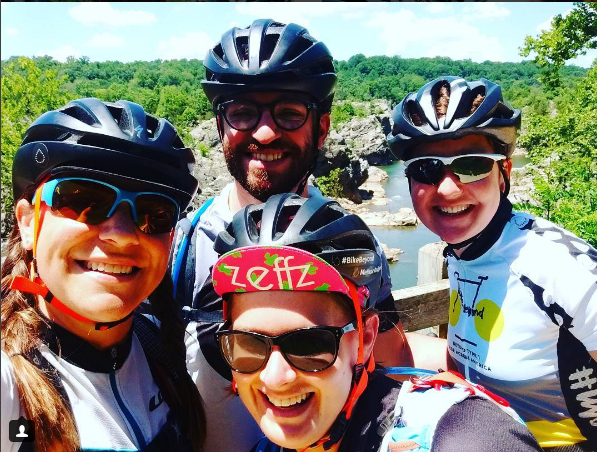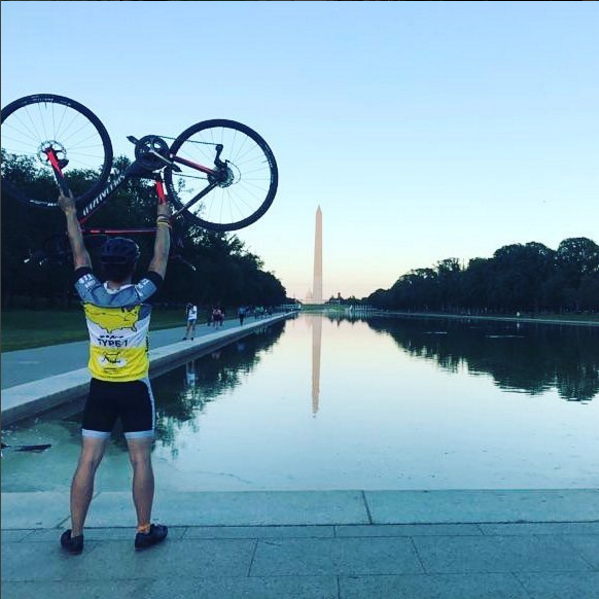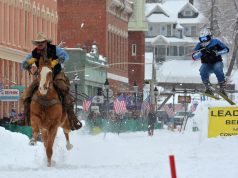
The signs were there: constant thirst, loss of weight despite a healthy appetite, fatigue. A trip to the hospital confirmed it: 12-year-old Walt Drennan had type 1 diabetes.
Type 1 is a relatively rare condition, affecting only 5 percent of the total population of diabetics — type 2, sometimes referred to as adult onset diabetes, affects the other 95 percent. Type 1 is an autoimmune disease that attacks the cells in the pancreas that make insulin, a hormone that allows the body to use sugar from food as energy. Those with type 1 produce no insulin whatsoever, so sugar builds up in the blood and never makes it to the cells.
Regular insulin injections are necessary to keep blood sugar levels within a very specific range. Too much insulin can kill you, but too little can have long-term damaging affects on the kidneys and liver.
In the middle of a move from Texas to Mexico City, Drennan remembers his diagnosis getting somewhat lost — diluted — in the general chaos of the time. With his parents there to support him and help him manage the condition, Drennan didn’t feel scared or shocked, just different. He says he never truly accepted the diagnosis; he just “dealt with it.”

He never talked to people his age about having diabetes, and adults often didn’t know how to treat Drennan, fussing over what he could and couldn’t eat.
“There aren’t a lot of people with any understanding, or not enough understanding, about type 1, so they assume things,” he says. “It can be tough when you are alone in a community that doesn’t get what you are going through and likely never will. I was the only type 1 I knew for a long time. There are psychological and emotional effects that can happen outside of the medical complications.”
Drennan was never an athletic kid, more invested in books and video games. But that all changed in college when he found out about a program called Bike and Build. The ride takes young adults from Charleston, South Carolina, to Santa Cruz, California, after raising thousands of dollars in funding for affordable housing programs and taking courses in affordable housing issues.
Drennan had never ridden cross-country before, and he was the only member of the team with type 1 diabetes.
“Knowing what to expect was hard for me that first time,” he says. “[Before the ride] I found someone who had type 1 and had done it before. He told me how he’d prepared for it. It showed me that someone could get through it unscathed.”
It was on that first cross-country ride that Drennan finally found the acceptance he’d denied himself for so many years.
“It was the first time I had to accept and deal with my type 1 as a member of a team, as something that could affect other people, something that could affect their time on the trip,” Drennan says. “It was the first time I felt the drawbacks; it was a lot of exercise, there were a lot of lows, a lot of inexplicable highs, blood sugar wise. I learned a lot about my type 1; it’s a part of me but it can’t define me. It taught me how to minimize risks, how to live with it and how to have a good time on the bike.”

Drennan had such a good time, he signed up for another cross-country bike ride through the 4K for Cancer program. Again, he was the only member of the team with type 1. He made the decision to keep it to himself, but he felt isolated.
After his second ride, an idea began to percolate: what would it feel like not to be alone on this kind of ride? What if he could raise money and awareness about type 1? What if Drennan stopped being quiet about his condition and started educating people about it?
The answer was Bike Beyond, a program Drennan developed with the help and backing of outreach and educational outfit Beyond type 1.
The inaugural ride this summer includes more then 20 people with type 1 diabetes, cycling from New York City to San Francisco, a total of 4,248 miles. Teams of four to five cyclists ride each day, covering an average of 75 miles a day. Another two team members travel in an equipment trailer, and others work setting up lunch and rest breaks. Each rider was required to raise $4,500 in order to participate.
The team raised more than $100,000 and has traveled more than halfway through their countrywide trip, stopping in cities along the way to talk about type 1. They’ll be stopping in Boulder on Monday, July 17.
“My hope for this ride was to show … what type 1 really is and what it’s like to live with it but also what can be done, and the importance of support,” Drennan says. “I feel like this ride has been a lot easier because I have 20 people who know exactly what it’s like. … If I’m missing medication I can ask somebody to borrow something. It’s a really weird weight to be lifted off because I’ve had it for so long.”

Drennan hopes the ride becomes an annual event, something that people “can look forward to, that they can kind of put on their bucket list.”
“I don’t really worry about the future of diabetes research,” Drennan admits. “There’s a running joke in the type 1 world that the cure is five or 10 years away. I’ve been hearing that for 17 years now. I don’t pay attention to the research aspect of it. What I do pay attention to is people with type 1 doing extraordinary things.”














